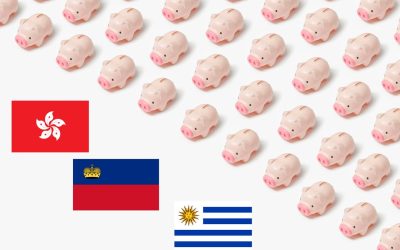Personal Income Tax
Freelancers (or digital nomads) wishing to relocate for an extended period, more than 183 days may be liable to Portuguese personal income tax on their worldwide income. Exploring the Non-Habitual Tax Resident (NHR) route may be an option that one should consider if one intends to be freelancing in Madeira.
Generally speaking, under the NHR scheme, foreign-sourced income is exempt from personal income tax in Portugal, provided some requirements are met under the scheme’s rules. In addition, Portuguese sourced income may be subject to a flat tax of 20% if the activity carried out by the digital nomad is deemed as a high-added-value activity.
Personal Income Tax and Freelancing
Under Portuguese tax law, freelancing entails the income from a commercial, industrial, or agricultural activity and income from a sole trader (including scientific, artistic, or technical services) or from intellectual rights (when earned by the original owner) may be taxed either under a simplified regime or based on the taxpayer’s organized accounts.
The simplified regime will apply only to freelancing taxpayers who, not having opted for organized accounts, have a turnover or a gross business and professional income lower than EUR 200,000 (for 2020) in the previous year. Under this simplified regime, the above income is taxed on 75% of income arising from business and professional services listed in the table referred to in Article 151 of the PIT Code. As an incentive for taxpayers joining the simplified regime, the coefficient of 75% is reduced by 50% and 25%, in the tax period of the beginning of activity and in the following one. The applicable personal income tax rate might be progressive (up to 48%) or flat at 20% (under NHR scheme conditions).
The income ‘deduction’ arising from the application of the coefficient of 75% is partially conditioned by the verification of expenses and charges effectively incurred and related to the activity.
Therefore, to the taxable income determined by applying the coefficients will be added the positive difference between 15% of the gross income and the sum of the following amounts (EUR 27.360):
- EUR 4,104 or, when higher, the total amount of mandatory social security contributions (in the part not exceeding 10% of the gross income received).
- Staff expenses, wages, or salaries communicated to the Portuguese tax authorities.
- Property rentals allocated to the professional activity communicated through the issue of an electronic receipt or a specific statement, whose invoices and other documents are communicated to the Portuguese tax authorities (if only partially assigned to the professional activity, it is considered only 25% of the total amount).
- 1.5% of the tax registration value of the properties assigned to the business or professional activity or 4% of the tax registration value of properties assigned to the hotel or letting activities (if only partially assigned to the professional activity, it is considered only 25% of the total amount).
- Other expenses with the acquisition of goods and services related to the activity, duly communicated to Portuguese tax authorities, namely expenses with current consumption materials, electricity, water, transports and communications, rents, litigation, insurance, leasing rents, mandatory fees paid to professional associations and other organizations representing professional activities to which the taxpayer belongs, travels and stays of the taxpayer and one’s employees (if only partially assigned to the activity, it is considered only 25% of the total amount).
- Imports and intra-Community acquisitions of goods and services related to the activity.
In addition to the amount of the above deduction, the amount of mandatory social security contributions paid, exceeding 10% of gross income and related to such professional activities, may also be deducted from the self-employment income if not deducted for other purposes.
The contributions rate applicable to self-employees corresponds to 21.4%. The monthly contribution basis for self-employees corresponds to 1/3 of the relevant remuneration determined in each reporting period and produces effects in that month and in the following two months. To determine the relevant remuneration of the self-employed, it is considered the income received in the three months previous to the reporting month. The relevant remuneration corresponds to 70% of the amount of services rendered. The contribution base considered for each month has a maximum limit of 12 times the value of the IAS (5,265.72 euros, value in 2020), i.e. maximum contributions per month are 21.4%x(12 IAS) = EUR 1126.86.
As a freelancer or self-employed person, it is essential to note that you will be exempt from making Social Security payments for the first 12 months from the start of your activity. Social security contributions must be paid between the 10th and the 20th of the month following the month to which they refer.
VAT in Portugal is payable by all businesses with a turnover in excess of €12,500 on taxable services. VAT is payable to the Portuguese Tax Authority seven days after the reporting deadline periods, either quarterly or monthly.
Last but not least, please note that invoices related to your freelancing activity must be issued through a Portuguese Ministry of Finance approved invoicing software.
This article is provided for general information purposes only and is not intended to be, nor should it be construed as, legal or professional advice of any kind.

Laurinda holds a Diploma in Business Administration from the South African Institute of Administration and Commerce… Read more




